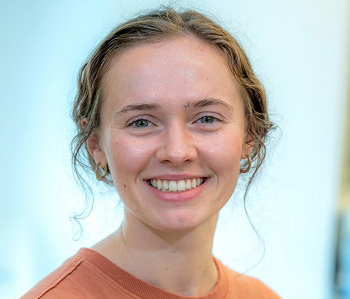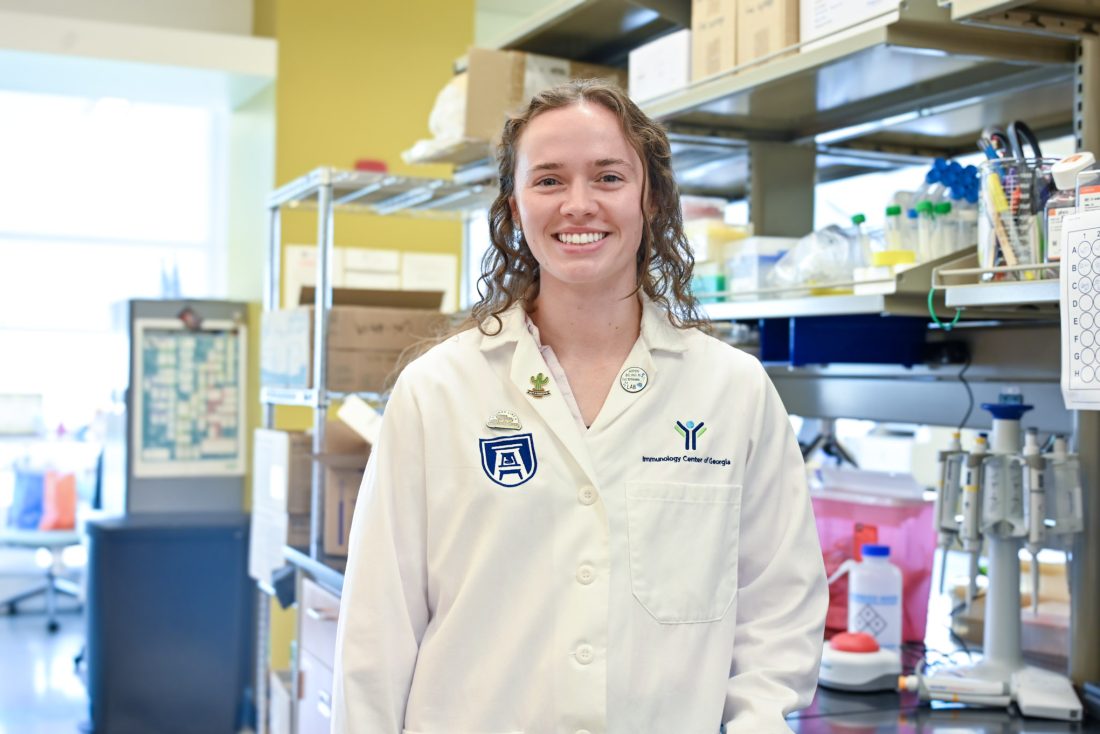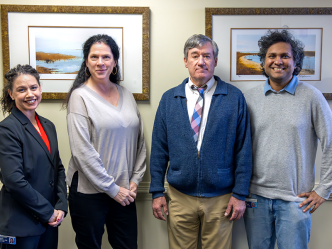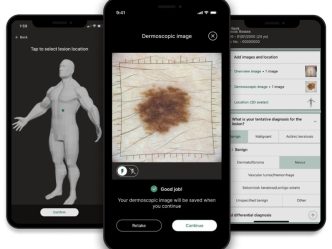A tumor microenvironment, or TME, is the ecosystem that surrounds a tumor inside the body. It is composed of immune cells, including monocytes and macrophages, endothelial cells, fibroblasts and blood vessels. While they can vary in the amount of content depending on the type of cancer, each one contains immune cells, and each microenvironment can be used by the tumor to not only grow faster but also to spread across the body.
Research is still relatively new on microenvironments, as the understanding of cancer has evolved, however it is critical to determine the interplay between the tumor and the microenvironment to target specific pathways or interactions for successful treatment. This has encouraged researchers to be more creative when looking into new treatment methods.
“Olfactory receptors are traditionally associated with smell, but recent preliminary data shows us that Olfr2 can influence melanoma growth, as well as T cell infiltration and activation,” said Elayne Benson, a third-year PhD candidate with the Immunology Center of Georgia located in the Medical College of Georgia at Augusta University.

Working as a graduate research assistant in the lab of Lynn Hedrick, PhD, Benson has received a grant directly from Paceline, which helps to raise funding for research at Augusta University’s Georgia Cancer Center. The Hedrick Lab’s area of focus is on immune myeloid cells in health, cardiovascular disease and cancers, which led Benson to her interest in myeloid olfactory receptors, or ORs, in cancer.
“I want to work toward more effective ways of treating and screening cancer, specifically, in my case, melanoma,” Benson said.
According to the American Cancer Society, melanoma, or skin cancer, is the most common of all cancers in the United States. Immunology, a type of treatment in which medicines help a person’s immune system detect and destroy cancer cells more effectively, is often used when treating melanoma.
Her research, “Decoding the role of Olfactory Receptor 2 in myeloid cell function and tumor immunomodulation,” focuses on how Oflr2, a type of OR found in humans, shapes immune interactions within tumors. Benson hopes to define the role of Olfr2 in myeloid cell-mediated modulation of the TME and its potential as a target to enhance anti-tumor immunity.
“This research could enlighten novel strategies to improve immunotherapy efficacy, and I am grateful to Paceline for funding this opportunity,” she said.
Since 2019, Paceline has raised nearly $1.7 million for innovative cancer research and has funded over 30 researchers and their projects at the Georgia Cancer Center.
This year, Paceline is expanding its signature fundraising event, PaceDay, to make supporting cancer research more accessible for all, with walk and run options in addition to the bike riding option. PaceDay 2025 is scheduled for Oct. 5. Sign up by visiting the PaceDay website.
Discoveries at Augusta University are changing and improving the lives of people in Georgia and beyond. Your partnership and support are invaluable as we work to expand our impact.
 Augusta University
Augusta University




